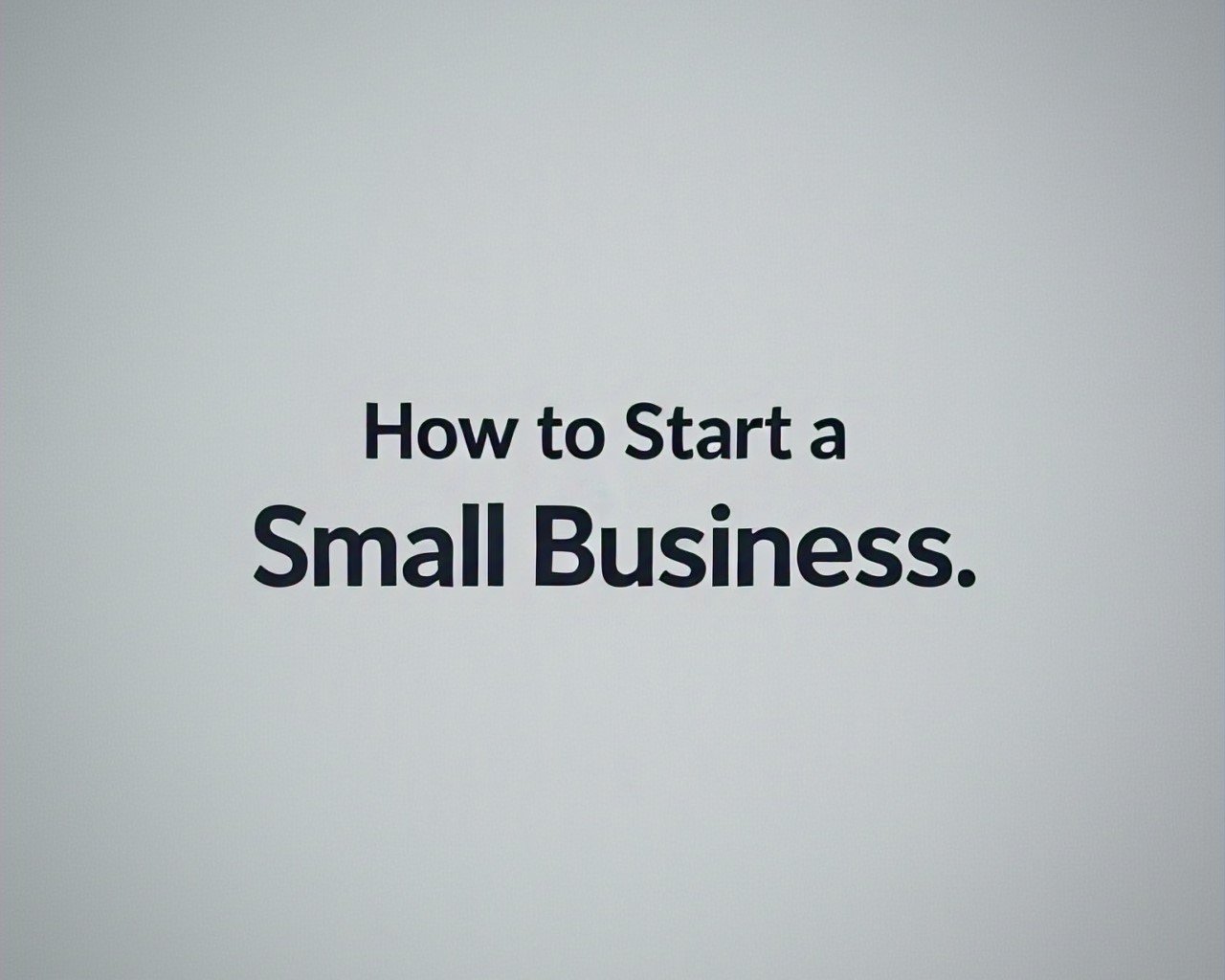Naija to the UK: cracking the cultural code
Many Nigerians find the UK favourable and desirable for...

Starting a small business is an exciting yet challenging journey. Whether you want to turn a passion into a profession or achieve financial independence, entrepreneurship offers endless possibilities. However, launching a successful business requires careful planning, strategic execution, and resilience.
We will explore the essential steps required to start a small business, from validating your idea to securing funding and marketing your brand. By the end, you’ll have a clear roadmap to transform your vision into a profitable reality.
Every successful business begins with a strong idea. However, having an idea is not enough—you need to ensure that it is feasible and profitable. To identify the right business idea, consider the following questions:

What are your skills, passions, and experiences that could be turned into a business?
Is there a demand for your product or service?
Who is your target audience, and what problem does your business solve?
Before investing time and money, you should test your business idea to determine its potential. Here are a few ways to validate your concept:
Market Research: Conduct surveys, hold focus groups, and use online tools to gauge demand.
Competitor Analysis: Study existing businesses in your industry to identify their strengths and weaknesses.
Minimum Viable Product (MVP): Create a simplified version of your product or service and offer it to a small audience to gauge interest.
For example, if you are passionate about baking and want to start a home bakery, you could sell small batches at local events or online to assess demand before investing in a commercial kitchen.
Additionally, consider using tools like Google Trends, social media polls, and industry reports to gain further insights into consumer interests and market gaps.
A business plan serves as a roadmap for your venture. It outlines your business goals, strategies, and financial projections. A well-written business plan is also essential when seeking investors or applying for loans. Key sections of a business plan include:
This section provides a brief overview of your business, including your mission statement, goals, and a summary of your products or services. Keep it concise yet compelling to capture interest.
Understanding your industry and target market is crucial for success. Research your competitors, identify trends, and determine your ideal customer demographic. Use data and statistics to back up your findings. For instance, if your target audience is young professionals, highlight purchasing trends among that demographic.
Define how your business will generate revenue. Will you sell products, offer services, or use a subscription model? Be clear about pricing strategies, cost structure, and profit margins.
Describe how you plan to attract and retain customers. Consider digital marketing, social media, email campaigns, and traditional advertising methods. Highlight how you will differentiate yourself from competitors through branding and unique value propositions.
Estimate your startup costs, pricing strategy, projected revenue, and potential funding sources. Create a detailed financial projection covering at least the first three years. This should include:
Revenue estimates
Cost breakdowns (fixed and variable)
Profit and loss forecasts
Cash flow analysis
A well-structured business plan increases your chances of success and serves as a reference as you grow your business.
Choosing the right business structure is essential for tax purposes, legal protections, and operational efficiency. The most common business structures include:
Sole Proprietorship: Easy to set up but does not provide personal liability protection.
Limited Liability Company (LLC): Offers legal protection for personal assets while maintaining flexibility.
Corporation: More complex but beneficial for businesses planning to raise capital or go public.
Depending on your location and industry, you may need to register your business name and obtain necessary licenses and permits. If you plan to hire employees, you will also need an Employer Identification Number (EIN) from the tax authorities.
For example, if you are opening a restaurant, you will likely need food service permits, health inspections, and zoning approvals before launching your business. Additionally, ensure your business name is unique by checking trademark databases and domain availability.
Starting a business requires financial investment. Understanding different funding options will help you choose the right approach to finance your venture.
Many entrepreneurs begin by using personal savings or reinvesting profits to grow their business. While bootstrapping allows you to maintain full control, it may limit growth potential in the early stages.
Banks and government-backed loan programs, such as SBA loans, can provide necessary funds for startups. Ensure you have a strong credit history and a solid business plan before applying. Explore different lenders and compare interest rates to secure the best terms.
Angel investors and venture capitalists can provide funding in exchange for equity in your business. However, this often requires giving up partial ownership and control. Be prepared to pitch your business persuasively.
Platforms like Kickstarter, Indiegogo, and GoFundMe allow entrepreneurs to raise money from the public in exchange for early access to products or other incentives. Craft a compelling campaign with visuals and storytelling to maximize engagement.
Regardless of your funding source, maintaining a detailed budget and tracking expenses is crucial for financial stability.
Once your business is registered and funded, you need to establish operational processes to ensure smooth daily functions.
Separating personal and business finances makes it easier to track income, expenses, and taxes.
Use accounting software like QuickBooks or hire an accountant to manage cash flow and financial records. Consider integrating payroll systems if you have employees.
If you are selling physical products, find reliable suppliers, manufacturers, and distributors to ensure timely delivery. Establish relationships with backup suppliers to avoid disruptions.
Having an online presence is essential for credibility. Build a website using platforms like Shopify, Wix, or WordPress, and optimize it for search engines (SEO). Implement secure payment gateways and user-friendly navigation.
A strong marketing strategy is essential for attracting customers and building brand awareness. Consider the following approaches:
Your brand includes your business name, logo, messaging, and overall aesthetic. A strong brand identity helps differentiate you from competitors.
Create a website and optimize it for SEO to improve search visibility.
Use social media platforms such as Instagram, Facebook, LinkedIn, and TikTok to connect with potential customers.
Content Marketing: Start a blog, podcast, or YouTube channel to provide valuable content and showcase your expertise.
Email Marketing: Build an email list and send newsletters, promotions, and updates to keep customers engaged.
Paid Advertising: Run targeted ads on Google, Facebook, and other platforms to increase visibility.
Once your business is operational and generating revenue, consider ways to expand and increase profitability.
Introducing complementary products or services can attract more customers and increase sales. For instance, a bakery could expand by offering catering services or baking classes.
As your business grows, hiring staff will help you manage increasing workloads and improve efficiency.
Using software and automation tools for tasks like customer service, email marketing, and inventory management can save time and improve productivity.
Starting a small business requires dedication, but with the right approach, it can be incredibly rewarding. By validating your idea, planning strategically, securing funding, and marketing effectively, you’ll set a strong foundation for success.
Remember, every great business started as an idea. Take action today, and turn your dream into reality!